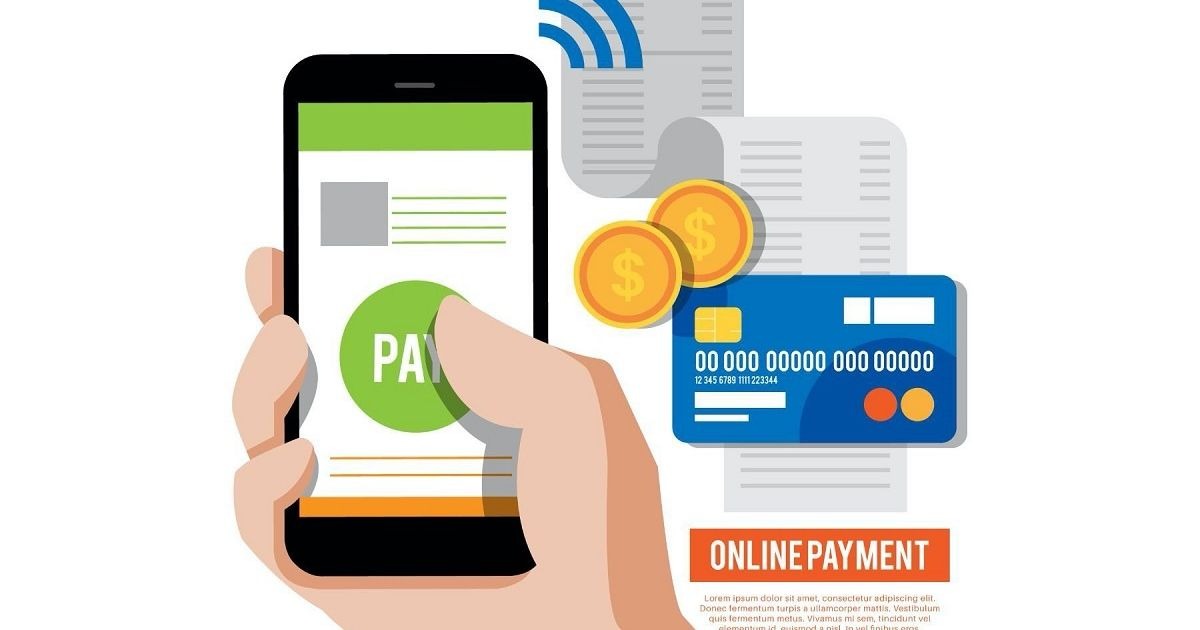Table of Contents
- Best Credit Card Processing for High-Risk Businesses
- Understanding High-Risk Payment Gateways
- Credit Card Machines for Phones: A New Trend
- Merchant Processing for High-Risk Industries
- Mobile Credit Card Processing for Small Businesses
- Best Credit Card Readers for Small Businesses
- Choosing the Right Card Machines for Small Businesses
- High-Risk Credit Card Processing Solutions
- Instant Approval for High-Risk Merchant Accounts
- Merchant Payment Processing for Small Businesses
- Accepting Payments Online: A Guide for Small Businesses
- Best Way to Accept Credit Card Payments for Small Businesses
- Online Payment Systems for High-Risk Businesses
Introduction
Running a business in a high-risk industry brings unique challenges, especially when it comes to payment processing. Many business owners face difficulties finding reliable payment solutions that meet their specific needs while maintaining compliance with industry regulations. The landscape of payment processing has evolved significantly over the years, offering new opportunities for businesses traditionally labeled as high-risk.
Payment processing remains one of the most crucial aspects of any business operation. For high-risk merchants, the stakes are even higher. These businesses must navigate complex regulations, higher fees, and stricter requirements while maintaining smooth payment operations for their customers. The right payment solution can mean the difference between success and failure in today's competitive market.
The good news? The payment processing industry has made significant strides in accommodating high-risk businesses. New technologies, innovative solutions, and specialized providers have emerged to serve these unique needs. This comprehensive guide explores every aspect of high-risk payment processing, from choosing the right provider to implementing the most effective solutions for your business.
Best Credit Card Processing for High-Risk Businesses
The best credit card processing solutions for high-risk businesses go beyond basic payment acceptance. Top providers must offer robust security features, reliable customer support, and competitive rates despite the higher risk nature of the transactions.
Several factors set leading credit card processors apart in the high-risk space. First-rate providers deliver comprehensive chargeback management tools, robust fraud prevention systems, and flexible payment routing options. They also maintain strong relationships with multiple acquiring banks, ensuring stable processing even if one bank decides to terminate the relationship.
Companies like PaymentCloud, Durango Merchant Services, and SMB Global have built solid reputations in the high-risk processing space. These providers offer tailored solutions that address specific industry challenges while maintaining reasonable rates and transparent pricing structures. They've proven particularly effective for businesses in industries like CBD, online gaming, and subscription services.
When selecting a credit card processor, high-risk merchants should consider several key aspects:
- Processing volume capabilities
- Supported payment types
- International transaction handling
- Chargeback prevention tools
- Integration options
- Customer support availability
- Contract terms and conditions
The application process for high-risk merchants typically involves more scrutiny than standard merchant accounts. Top processors streamline this process while maintaining necessary due diligence. They'll request detailed business information, processing history, and financial statements but work efficiently to get accounts approved and running quickly.
Understanding High-Risk Payment Gateways
A high risk payment gateway serves as the crucial bridge between merchants operating in challenging industries and the broader financial system. These specialized gateways handle transactions that standard payment processors often decline, providing essential services to businesses in industries like adult entertainment, gaming, pharmaceuticals, and travel.
These gateways employ advanced security measures and sophisticated fraud detection systems to manage the increased risks associated with certain business types. They've developed specialized tools to handle high ticket items, recurring billing, and international transactions - common features in high-risk industries.
The technical infrastructure of high-risk gateways differs significantly from standard payment solutions. They incorporate additional layers of verification, more detailed transaction monitoring, and enhanced reporting capabilities. This robust infrastructure helps maintain processing stability while minimizing the risk of fraudulent transactions and chargebacks.

High-risk payment gateways often provide these essential features:
- Multi-currency processing capabilities
- Advanced fraud screening tools
- Detailed transaction monitoring
- Customizable payment routing
- Multiple MID support
- Chargeback prevention systems
- Enhanced reporting tools
One of the most valuable aspects of high-risk gateways involves their ability to maintain multiple processing relationships simultaneously. This redundancy ensures business continuity even if issues arise with one processor or acquiring bank. The best gateways can seamlessly route transactions through different processors based on various criteria, optimizing approval rates and reducing costs.
Credit Card Machines for Phones: A New Trend
Phone-based credit card machines have revolutionized the way businesses handle payments. These mobile solutions transform smartphones into powerful point-of-sale terminals, offering flexibility and convenience that traditional card machines can't match. The technology has proven particularly valuable for high-risk merchants who need mobility without sacrificing security.
Modern credit card machines for phones incorporate sophisticated encryption and security measures. They protect sensitive card data from the moment of capture through the entire transaction process. This end-to-end encryption proves especially crucial for high-risk merchants who face increased scrutiny of their security practices.
Many businesses have discovered unexpected benefits after switching to phone-based payment solutions. Field sales teams can now process payments on the spot, reducing payment delays and improving cash flow. Service providers can offer convenient payment options at customer locations, enhancing the overall service experience.
Key advantages of phone-based credit card machines include:
- Lower hardware costs
- Simplified setup process
- Regular security updates
- Integration with business software
- Real-time transaction tracking
- Multiple payment type support
- Portable operation
The market offers various solutions for different business needs. Square leads in user-friendly design, while PayPal Here provides seamless integration with PayPal accounts. Clover Go offers robust features for businesses requiring more advanced capabilities. Each solution brings unique strengths to serve different merchant needs.
Merchant Processing for High-Risk Industries
The merchant processing landscape for high-risk industries presents unique challenges and opportunities. Businesses in sectors like online gambling, cryptocurrency, or nutraceuticals require specialized processing solutions that can handle their transaction patterns while managing increased regulatory scrutiny.
Successful merchant processing in high-risk industries demands a deep understanding of specific sector requirements. Processors must navigate complex regulatory frameworks while providing reliable service. They need robust systems to handle higher chargeback rates and more sophisticated fraud attempts common in these industries.
High-risk merchant processors have developed specialized tools and approaches to serve these unique markets. They employ advanced underwriting processes that consider industry-specific factors rather than applying one-size-fits-all criteria. This tailored approach helps legitimate businesses secure stable processing services despite their high-risk classification.
Essential features of high-risk merchant processing include:
- Enhanced due diligence procedures
- Specialized fraud prevention tools
- Industry-specific compliance support
- Multiple banking relationships
- Customizable processing limits
- Advanced chargeback management
- Detailed reporting systems
The relationship between high-risk merchants and their processors extends beyond simple payment processing. Leading providers act as true partners, offering guidance on risk management, compliance, and business optimization. They help merchants implement best practices that can reduce their risk profile over time.
Mobile Credit Card Processing for Small Businesses
Mobile credit card processing for small business has transformed how entrepreneurs handle payments. These solutions offer freedom from traditional payment constraints, allowing business owners to accept payments anywhere with cell service or WiFi access. This flexibility proves particularly valuable for high-risk merchants who need versatile payment options.
The technology behind mobile processing has matured significantly. Today's solutions offer security features that rival traditional point-of-sale systems. They support EMV chip cards, contactless payments, and digital wallets while maintaining strict PCI compliance standards. This robust security makes them suitable even for high-risk transactions.
Small businesses across various industries have embraced mobile processing solutions. Food trucks use them to handle peak rush periods efficiently. Service providers process payments during house calls. Retail pop-ups manage transactions at temporary locations. The applications continue to expand as the technology evolves.

Critical considerations for mobile processing include:
- Transaction fee structures
- Hardware compatibility
- Integration capabilities
- Offline processing options
- Support availability
- Settlement timeframes
- Security features
Many providers have created specialized mobile processing solutions for small businesses. Some focus on specific industries, while others offer general-purpose solutions adaptable to various business types. This variety ensures that most businesses can find a mobile processing solution that fits their specific needs.
Mobile Credit Card Processing for Small Businesses
Mobile credit card processing for small business has revolutionized how entrepreneurs handle payments in the modern marketplace. Small business owners no longer need to be tied to a physical location or traditional payment terminals. They can now accept payments anywhere, anytime, using just their smartphones or tablets.
Today's mobile processing solutions pack serious power into small packages. Most readers connect directly to smartphones through Bluetooth or the headphone jack, offering secure payment processing on the go. The best part? These solutions often cost a fraction of traditional payment terminals while offering similar or even better features.
Service-based businesses particularly benefit from mobile processing solutions. Plumbers, electricians, and other contractors can now collect payment right after completing their work. No more sending invoices and waiting weeks for checks to arrive in the mail. This immediate payment collection dramatically improves cash flow and reduces payment defaults.
The software behind mobile processing has come a long way too. Modern apps offer features like:
- Digital receipt delivery
- Inventory tracking
- Customer database management
- Sales analytics
- Employee management
- Tipping options
- Loyalty program integration
Setting up mobile processing proves surprisingly straightforward for most small businesses. Many providers ship card readers for free with a new account, and the apps download quickly from standard app stores. Within hours, most businesses can start accepting credit card payments through their mobile devices.
Best Credit Card Readers for Small Businesses
Finding the best credit card reader for small business involves weighing various factors against specific business needs. The market offers numerous options, from basic mobile card readers to full-featured POS systems. Price points vary widely, but even budget-friendly readers now offer impressive capabilities.
Square leads the pack with its reader lineup, offering both basic magstripe readers and advanced contactless payment solutions. Their readers work seamlessly with their popular POS app, making them an excellent choice for businesses just starting with card payments. The simple percentage-based pricing attracts many small business owners.
Clover's card readers bring enterprise-level features to small businesses. Their Flex device handles all payment types while offering inventory management and employee tracking. Though more expensive than basic readers, the additional features justify the cost for many businesses. The system grows with the business, preventing the need for future upgrades.
Key features to consider when choosing a card reader include:
- Payment type support
- Connection methods
- Battery life
- Durability
- Software compatibility
- Additional fees
- Support options
Modern card readers must handle multiple payment types to meet customer expectations. EMV chip cards have become standard, and contactless payments continue gaining popularity. The best readers handle all these payment methods while maintaining strict security standards.
Choosing the Right Card Machines for Small Businesses
Card machines for small businesses come in many shapes and sizes. From traditional countertop terminals to modern smart terminals, each type serves specific business needs. Selecting the right machine depends heavily on factors like transaction volume, mobility requirements, and integration needs.
Traditional countertop terminals still serve many businesses well. They're reliable, familiar to customers, and often more affordable than newer options. These machines work particularly well for retail stores and restaurants with fixed checkout locations. They typically connect via ethernet or phone lines, ensuring stable connectivity.
Smart terminals represent the next evolution in card machines. They combine payment processing with business management features, often running on Android or iOS operating systems. These devices can handle inventory, create reports, and manage customer relationships alongside payment processing. Though more expensive, their additional features often provide good value.

Several factors influence the choice of card machine:
- Business type and location
- Transaction volume
- Payment types needed
- Integration requirements
- Budget constraints
- Future growth plans
- Technical support needs
Wireless terminals offer a middle ground between traditional and smart terminals. They provide mobility within a limited range while maintaining reliable connectivity. These prove popular in restaurants, allowing servers to process payments at tables. Some models even include basic business management features.
High-Risk Credit Card Processing Solutions
High risk credit card processing requires specialized solutions designed to handle unique challenges. These solutions must balance security requirements with business efficiency while managing higher chargeback rates and fraud risks. Providers in this space have developed sophisticated tools to meet these demands.
Successful high-risk processing starts with proper merchant classification. Providers assess business types, transaction patterns, and risk factors to develop appropriate processing solutions. This careful evaluation helps ensure stable processing services while managing risk effectively. Different industries may require different approaches to maintain processing stability.
Chargeback management plays a crucial role in high-risk processing. Leading providers offer tools to prevent and fight chargebacks, helping merchants maintain acceptable chargeback ratios. These tools often include real-time monitoring, alert systems, and automated response mechanisms. Effective chargeback management can mean the difference between maintaining and losing processing privileges.
Essential components of high-risk processing include:
- Advanced fraud detection
- Multiple MID management
- Reserve account options
- Processing volume flexibility
- International payment support
- Detailed transaction monitoring
- Risk management tools
Many high-risk merchants benefit from multiple merchant accounts. This approach spreads transaction volume across different processors, reducing the impact of any single account closure. It also provides backup processing options if issues arise with one account.
Instant Approval for High-Risk Merchant Accounts
High risk merchant account instant approval sounds appealing, but the reality proves more complex. While some providers offer expedited approval processes, proper underwriting remains essential for stable processing relationships. The key lies in finding providers who balance speed with necessary due diligence.
The fastest approvals typically come from providers specializing in high-risk industries. They understand industry-specific challenges and maintain relationships with banks willing to work with higher-risk merchants. This expertise allows them to evaluate applications quickly while maintaining appropriate risk management standards.
Pre-approval processes help speed up account setup. Many providers now offer online pre-qualification tools that assess basic eligibility before submitting full applications. This approach saves time by identifying potential issues early in the process. Merchants can address concerns before submitting formal applications.
Requirements for quick approval typically include:
- Clean processing history
- Good credit standing
- Clear business documentation
- Transparent ownership structure
- Compliant website content
- Proper licensing
- Stable bank relationships
The best approach to quick approval involves proper preparation. Having all required documents ready and addressing potential concerns proactively can significantly speed up the approval process. Working with experienced providers who understand your industry also helps ensure smoother approvals.
Merchant Payment Processing for Small Businesses
Merchant payment processing serves as the backbone of modern small business operations. It enables businesses to accept various payment types while managing transaction flows efficiently. The right processing solution can significantly impact business success through improved cash flow and customer satisfaction.
Setting up merchant processing requires careful consideration of business needs and growth plans. Processors offer various service levels and features, from basic payment acceptance to comprehensive business management tools. Choosing the right level of service helps optimize costs while ensuring necessary functionality.
Processing fees impact profitability directly, making fee structure analysis crucial. Different processors use various pricing models, including flat rate, interchange-plus, and tiered pricing. Understanding these models helps businesses choose the most cost-effective option for their transaction patterns.
Key factors in merchant processing include:
- Processing rates and fees
- Settlement timeframes
- Account stability
- Integration options
- Support quality
- Contract terms
- Equipment needs
Many small businesses benefit from integrated payment solutions. These systems combine payment processing with other business functions like inventory management, customer tracking, and reporting. Though they may cost more initially, integrated solutions often provide better value through improved efficiency and reduced manual work.
Accepting Payments Online: A Guide for Small Businesses
Accepting payments online small business opens up tremendous growth opportunities in today's digital marketplace. From local shops to global retailers, online payment acceptance has become essential for business survival and growth. The key lies in selecting the right payment solutions that match business needs while maintaining security and efficiency.
Small businesses face unique challenges when setting up online payments. They need solutions that offer professional features without enterprise-level complexity or cost. Fortunately, numerous providers now offer scalable solutions designed specifically for small business needs. These solutions grow with the business, eliminating the need for frequent system changes.
Security remains a top priority for online payment acceptance. Small businesses must protect customer data while maintaining compliance with industry regulations. Modern payment solutions include built-in security features like encryption and fraud detection, helping businesses meet these requirements without significant additional investment.

Essential elements for online payment acceptance include:
- Shopping cart integration
- Payment page security
- Mobile optimization
- Multiple payment options
- Automated receipts
- Recurring billing options
- Refund management
The setup process for online payments has become much simpler. Many providers offer pre-built integrations for popular e-commerce platforms. These integrations handle technical details automatically, allowing businesses to focus on their core operations rather than payment technicalities.
Best Way to Accept Credit Cards for Small Business
The best way to accept credit cards for small business varies depending on business type, sales volume, and customer preferences. Some businesses need simple mobile solutions, while others require full-featured POS systems. The key lies in finding solutions that balance cost, functionality, and ease of use.
Modern credit card acceptance goes beyond basic payment processing. Leading solutions offer features like inventory tracking, customer management, and sales analytics. These additional tools help small businesses compete more effectively with larger competitors. They provide valuable insights that drive better business decisions.
Payment security plays a crucial role in credit card acceptance. Small businesses must protect customer data while preventing fraud. Modern payment solutions include built-in security features that help meet these requirements. Regular security updates ensure continued protection against evolving threats.
Important considerations for credit card acceptance include:
- Hardware requirements
- Software capabilities
- Integration options
- Processing fees
- Settlement times
- Support quality
- Contract terms
Mobile payments continue gaining popularity among small businesses. These solutions offer flexibility and lower startup costs compared to traditional terminals. Many businesses use mobile payments as their primary acceptance method or as backup for their main systems.
Online Payment Systems for High-Risk Businesses
Online payment systems must meet specific requirements for high-risk businesses. These systems need robust security features, reliable processing capabilities, and flexible configuration options. They must handle higher transaction volumes while maintaining strict security standards.
High-risk businesses often need multiple processing relationships to ensure stable payment acceptance. Leading online payment systems support multiple merchant accounts and payment processors. This flexibility helps businesses maintain consistent payment acceptance even if issues arise with individual processors.
International payments bring additional challenges for high-risk businesses. Payment systems must handle multiple currencies while complying with various regional regulations. Modern systems include features like automatic currency conversion and regional payment method support to address these needs.
Critical features for high-risk payment systems include:
- Advanced fraud detection
- Chargeback management
- Multiple processor support
- International payment handling
- Detailed reporting
- Customer verification tools
- Risk management features
Integration capabilities play a crucial role in online payment system selection. Systems must work seamlessly with existing business tools while supporting future growth. Many providers offer APIs and pre-built integrations to simplify this process.
Conclusion
The landscape of high-risk payment processing continues evolving rapidly. New technologies emerge regularly, offering improved solutions for businesses in challenging industries. Success in this space requires staying informed about industry changes while maintaining strong relationships with payment partners.
Several key trends shape the future of high-risk payments:
- Increased focus on security and fraud prevention
- Growth of mobile payment solutions
- Expansion of international payment capabilities
- Integration of artificial intelligence for risk management
- Development of blockchain-based payment solutions
Businesses operating in high-risk industries face unique challenges but also enjoy expanding opportunities. Modern payment solutions provide tools and capabilities previously available only to large enterprises. This democratization of payment technology helps level the playing field for businesses of all sizes.
Successful payment processing in high-risk industries requires:
- Strong security measures
- Reliable processing partners
- Multiple backup solutions
- Ongoing compliance management
- Regular system updates
- Effective risk management
- Continuous monitoring
The future looks promising for high-risk merchants willing to embrace modern payment solutions. Continued technological advancement will bring new opportunities for growth and efficiency. Businesses that adapt to these changes while maintaining strong security practices will find success in this evolving landscape.
